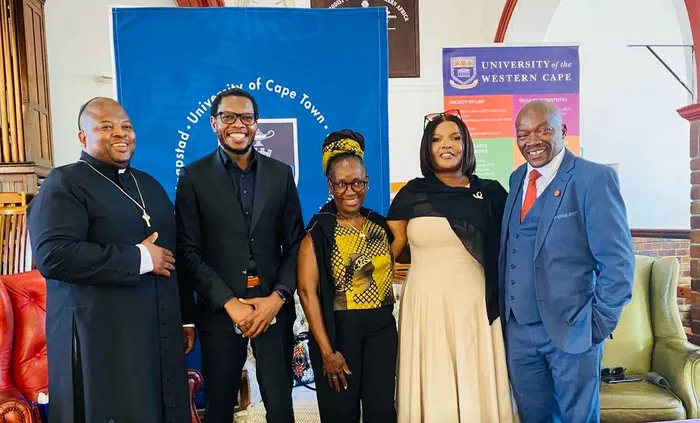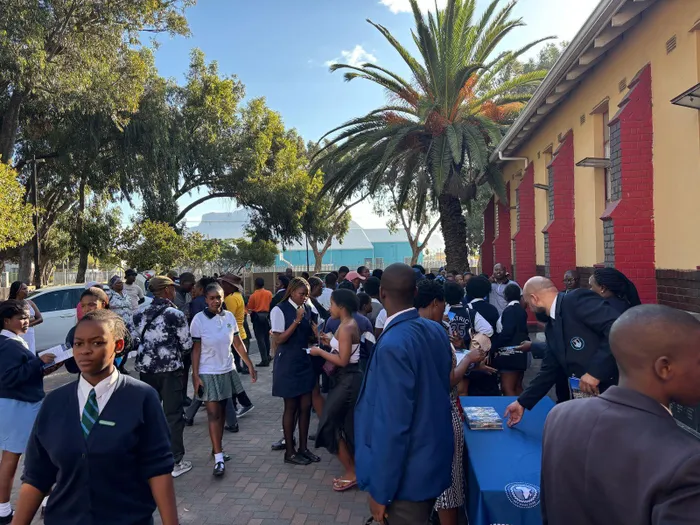Vice-chancellors engage Langa community in conversation

Reverend Mteto Peta,Professor Mosa Moshabela (UCT Vice Chancellor),Professor Matete Madiba ( UWC Vice Chancellor), Xoliswa Sidzumo-Bonani and Khwezi Nala Bonani (Ikhwezi Lokusa Edupath chair and executive director).
Image: Voox Sonandzi

Pupils from schools in Langa attended the event.
Image: Voox Sonandzi
The Langa Methodist Church of Southern Africa, in association with Ikhwezi Lokusa EduPath, hosted the Vice Chancellors’ Conversation last Sunday.
The gathering welcomed Professor Mosa Moshabela, Vice Chancellor of the University of Cape Town, and Professor Matete Madiba, Deputy Vice Chancellor of the University of the Western Cape. They were joined by high school pupils, teachers, and parents from Langa and surrounding communities.
Organised by Lusapho Zuba, chairperson of the Langa Methodist Church YMG, and Khwezi Bonani, chairperson and executive director of Ikhwezi Lokusa EduPath, the event aimed to bridge the gap between universities and communities. “We wanted to create a platform where university leadership could come into the communities and engage with their prospective students in their own environment," said Mr Bonani.
"Too often, learners are expected to travel to universities without ever having the chance to speak directly with university leaders.
”This goal was undoubtedly achieved, as over 200 learners and parents gathered at the church for an afternoon that made history. Rather than formal presentations, the session featured an intimate conversation, beginning with both professors sharing their personal journeys—from high school to their current leadership roles. They emphasized that career paths are rarely linear, and encouraged learners to embrace unexpected turns."
Professor Moshabela shared his own story of being rejected by UCT’s medical school years ago —o nly to return as its Vice Chancellor.
Professor Madiba urged pupils to make use of the wide array of student support services available at universities, noting their importance in helping students navigate the transition from school to higher education.
Audience questions were spirited and thoughtful, ranging from concerns about space constraints at universities, to the perceived prestige of different institutions, and the value of a university education in the face of high youth unemployment.
Both professors responded by reaffirming the long-term benefits of higher education, pointing to research and statistics showing that individuals with post-matric qualifications fare better in the job market than those without.
The overwhelming sentiment from attendees was one of gratitude. “This has been such an insightful experience for us learners, and we will forever be grateful to have been part of it,” said Avuya Mawo, one of the pupils in attendance. “Our only hope is that this becomes an annual event and reaches other communities, so more learners can benefit.”